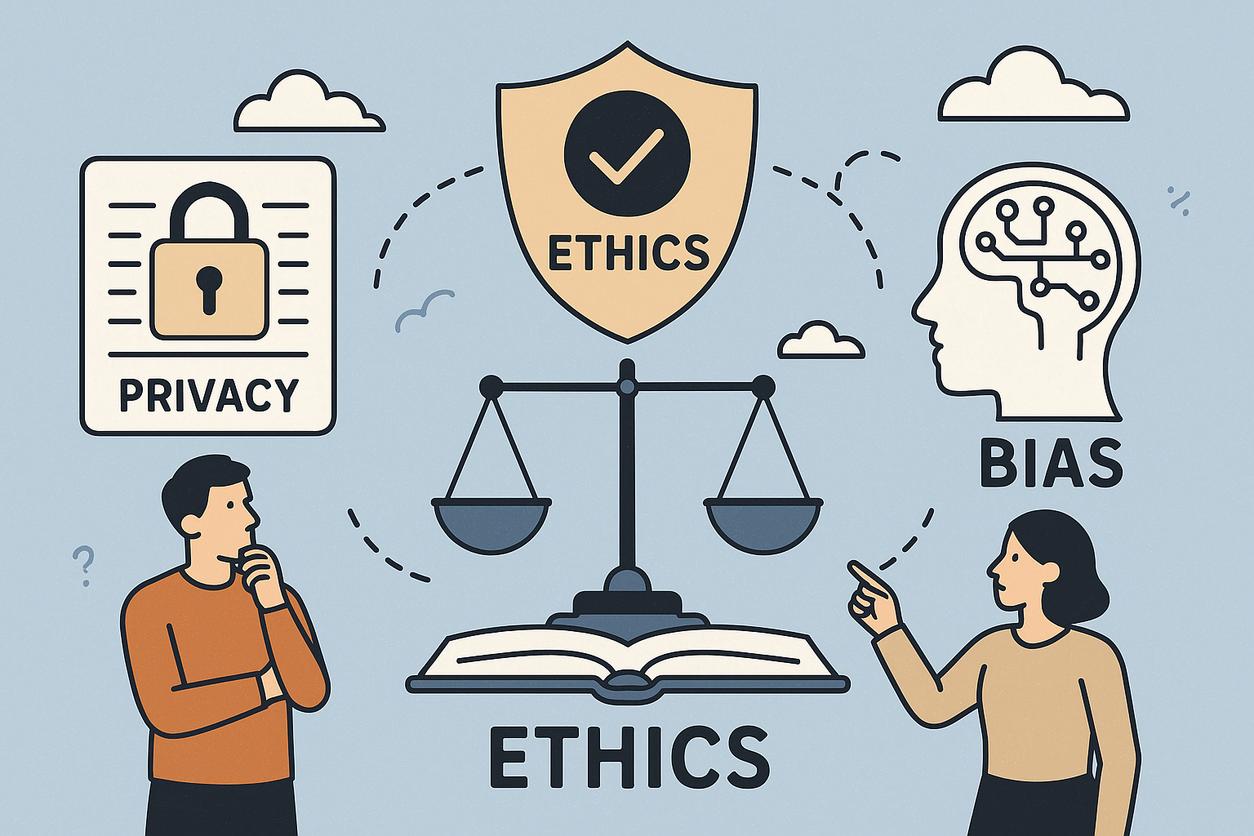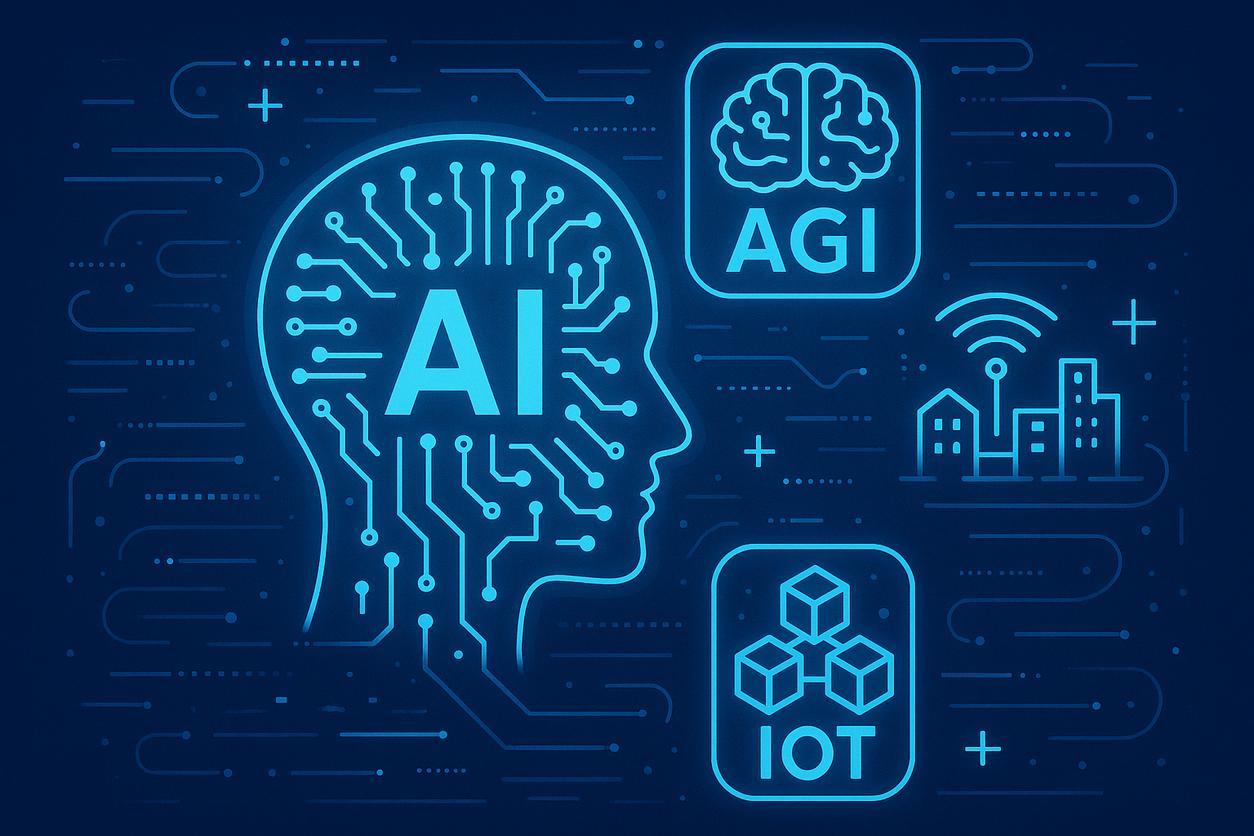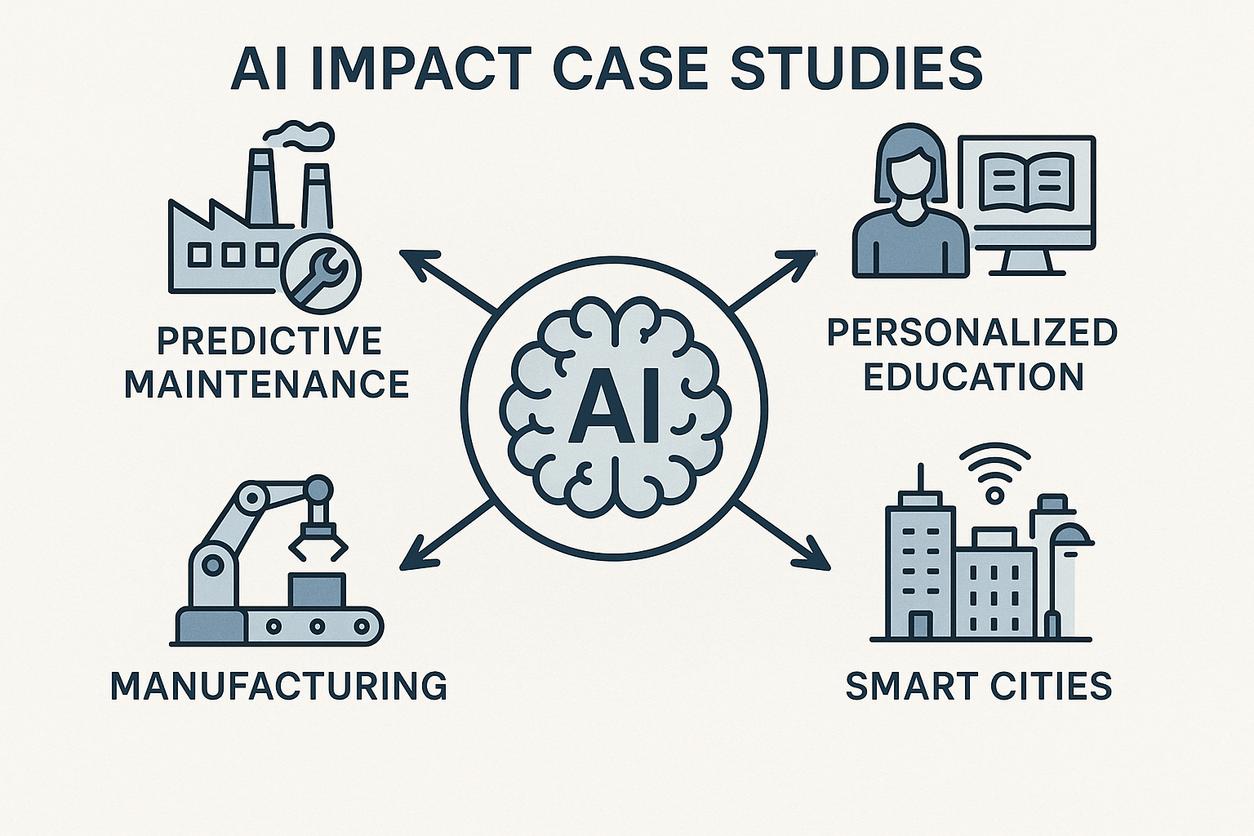Artificial Intelligence is transforming industries while raising critical ethical questions about its implementation and impact. This comprehensive guide examines how AI technologies are reshaping sectors from healthcare to finance, while highlighting the ethical considerations that must be addressed. From data privacy concerns and algorithmic bias to workforce displacement, the article explores the balance between technological innovation and ethical responsibility. Through real-world case studies and expert insights, readers will gain a deep understanding of AI's transformative potential, current limitations, and the ethical frameworks needed to ensure AI benefits humanity while minimizing harm.

One of the foremost concerns with AI is the issue of data privacy and security. AI systems often rely on vast amounts of data, which can include sensitive personal information. The misuse or mishandling of this data could lead to severe breaches of privacy. For instance, in 2018, the Cambridge Analytica scandal revealed how personal data could be harvested through social media platforms without explicit consent, raising alarms worldwide.
Ethical AI frameworks emphasize the need for transparency about data usage and the implementation of robust security protocols to protect user information. Legal frameworks such as the General Data Protection Regulation (GDPR) in Europe have been established to enforce strict guidelines on data handling, serving as a model for other regions.
Algorithmic bias occurs when AI systems exhibit prejudice in decision-making processes, often due to biased data sets. This issue has been highlighted in instances such as AI recruiting tools discriminating against candidates based on gender or race. For example, Amazon scrapped its AI recruiting tool in 2018 when it was found to be biased against women.
Addressing algorithmic bias requires a multifaceted approach, including diverse and comprehensive data sets, conscientious algorithm design, and regular audits. Experts advocate for AI systems to be transparent, allowing for third-party audits to assess fairness and mitigate bias.
The impact of AI on employment is a double-edged sword; while AI can enhance productivity and spawn new industries, it can also lead to significant job displacement. Automation in manufacturing and customer service sectors is particularly impactful, leading to potential unemployment issues. For example, studies by McKinsey Global Institute suggest that up to 800 million global jobs could be lost to automation by 2030.
Ethical frameworks encourage organizations to explore strategies such as reskilling and upskilling workers to adapt to AI-driven changes. Government and private sector collaboration is key in developing policies that foster workforce transitions in the evolving job market.
Microsoft's AI for Accessibility program exemplifies how AI technology can be ethically leveraged. The initiative focuses on creating tools that empower people with disabilities, utilizing AI to improve communication and interaction. This case study highlights the potential of AI to create inclusive solutions that address societal challenges while adhering to ethical standards.
The convergence of AI with other technologies like Blockchain, IoT, and the anticipated development of Artificial General Intelligence (AGI) presents new ethical considerations. Blockchain, for instance, offers a way to enhance transparency and accountability in AI systems through decentralized ledgers.
Furthermore, as AI systems evolve, developing ethical guidelines and cross-disciplinary collaborations will be crucial in navigating the challenges of complex AI environments. Experts suggest that ongoing research, stakeholder engagement—including from AI ethicists—and policy development will be essential to ensure AI technologies benefit society at large without adverse effects.
Renowned AI ethicist Timnit Gebru emphasizes the importance of inclusivity in AI development: "Without diverse perspectives, AI systems may fail to recognize or perpetuate disparities across different communities, leading to systems that are not only biased but also ineffective."
The ethical landscape of AI is a complex yet critical arena that shapes the trajectory of AI technologies. By fostering transparent practices and inclusive development, we can harness AI's transformative potential while safeguarding human values and societal norms. As AI continues to advance, embracing ethical frameworks will not just be an option, but a necessity for a sustainable technological future.
Engage in dialogues about AI ethics, support policies encouraging ethical AI innovation, and contribute to research that aligns with ethical standards. Together, we can ensure that AI technologies are developed and used responsibly, benefiting humanity as a whole.

Artificial Intelligence (AI) continues to evolve, presenting opportunities and challenges across industries. As we peer into the future, three significant trends stand out: Artificial General Intelligence (AGI), the Internet of Things (IoT), and blockchain integration. These advancements are not only set to transform AI capabilities but also hold the potential to redefine industries as we know them.
AGI represents the next frontier in AI development, where machines possess the ability to understand, learn, and apply intelligence across a wide array of tasks, much like a human. Unlike current AI systems, which are specialized and task-specific, AGI aims to exhibit versatile and adaptive capabilities.
Case Study: Consider the advancements made by OpenAI with models like GPT-3, which, although not AGI, demonstrate the potential of machines to perform diverse tasks from language translation to creative writing. These developments raise ethical concerns, such as the risk of creating machines that might act autonomously in unpredictable ways, necessitating robust regulatory frameworks.
Expert Quote: Dr. Andrew Ng, a prominent AI researcher, notes, "While AGI is still in its infancy, our journey towards achieving it must be grounded in ethical considerations and transparency to ensure these systems act in humanity's best interests."
The integration of AI with IoT is revolutionizing the way devices interact within networks, enhancing automated decision-making processes. IoT devices, powered by AI, can communicate and learn from each other, resulting in more efficient and intelligent networks.
Real-life Application: Smart cities are leveraging AI and IoT to improve infrastructure. For instance, Barcelona has implemented an intelligent lighting system that adjusts street lighting based on the presence of pedestrians, reducing energy consumption and improving safety.
Ethical Challenge: Privacy and security are heightened concerns in IoT environments. With a growing number of connected devices, the risk of data breaches and unauthorized surveillance increases, highlighting the need for stringent data protection measures.
Blockchain technology is often associated with cryptocurrencies, but its integration with AI offers substantial benefits, particularly in matters of data security, transparency, and trust.
Impact of Blockchain on AI: By recording transactions and processes securely, blockchain can improve the transparency and reliability of AI systems. This is crucial in industries like healthcare, where AI-driven decision-making needs to be transparent and verifiable.
Case Study: In supply chain management, companies like IBM are using blockchain to ensure the integrity of data analyzed and processed by AI systems. This application helps verify the authenticity and traceability of goods, reducing fraud and increasing consumer trust.
Future Outlook: As AI continues to expand into sectors like finance, healthcare, and education, integrating blockchain will be essential to safeguarding ethical standards and ensuring compliance with regulatory demands.
Understanding and adapting to these transformative trends will be pivotal for businesses and policy-makers. The convergence of AGI, IoT, and blockchain represents an inflection point that demands careful ethical consideration. Proactive engagement with these technologies will not only drive innovation but also guide responsible AI deployment.
Stakeholders are urged to invest in research and collaborative efforts that address ethical challenges and support regulatory frameworks to harness AI's potential responsibly. By doing so, we can ensure that AI serves as a powerful ally in advancing societal goals sustainably and equitably.
As we stand on the brink of a new era in AI, it's crucial to harness these technologies responsibly, ensuring that they amplify human capabilities rather than replace them, and uphold the ethical standards that guarantee benefits for all humanity.

Artificial Intelligence (AI) is a powerful tool that is redefining the way industries operate, solve problems, and expand their capabilities. The transformative role of AI can be observed through various case studies that highlight its impact across different sectors such as manufacturing, education, and urban development. These cases not only demonstrate AI's potential to address complex challenges but also raise important ethical considerations for the future.
One of the most prominent examples of AI's impact is in the field of predictive maintenance within the manufacturing industry. By utilizing AI algorithms and machine learning models, companies are able to predict equipment failures before they occur, drastically reducing downtime and maintenance costs. For instance, General Electric (GE) has implemented AI-driven predictive maintenance systems that have improved operational efficiency by predicting failures weeks in advance, thus preventing costly shutdowns. This not only enhances productivity but also contributes to sustainable manufacturing processes.
An expert in industrial AI applications, Dr. Lisa Fontenot, highlights that "AI in predictive maintenance has transformed factories into smart units that can autonomously handle maintenance schedules, which minimizes human error and enhances safety standards."
In education, AI is revolutionizing the way students learn, offering personalized and adaptive learning experiences. For example, Carnegie Learning has developed AI-powered platforms that adapt to the learning pace and style of each student. This personalized approach has shown to significantly improve student engagement and learning outcomes. Furthermore, AI algorithms can analyze vast amounts of student data to identify learning gaps and suggest tailored educational content.
A case in point is the collaboration between Squirrel AI and Chinese educational institutions, where AI tools are used to provide personalized tutoring that has reportedly increased students' performance levels by 30% in various subjects.
Despite these benefits, ethical challenges such as data privacy and the digital divide need to be addressed to ensure equitable access to AI-driven educational tools.
AI is also playing a crucial role in the development of smart cities, particularly in enhancing urban planning, traffic management, and energy efficiency. The city of Barcelona, for instance, uses AI to manage its public services efficiently. AI algorithms process data from sensors around the city to optimize everything from energy usage to public transport scheduling, leading to a more sustainable and convenient urban lifestyle.
However, the integration of AI in smart cities presents ethical challenges. Dr. Mina Lee, an urban technology researcher, notes, "While AI promises to bring smart efficiencies, it is crucial to maintain transparency and public trust. There must be clear policies on data usage and privacy to safeguard citizens' rights."
These case studies reveal not only the transformative potential of AI across different sectors but also the profound ethical considerations they necessitate. As AI continues to evolve, it is essential for policymakers, technologists, and societal leaders to collaborate and establish robust ethical frameworks that guide AI development responsibly.
By exploring these real-life cases, we hope to inspire more innovative applications of AI that are both ethical and impactful, pushing boundaries while acknowledging and addressing the associated challenges.

AI automation, while transformative, is fraught with challenges that impede its potential. As industries strive to harness AI's capabilities, they must navigate technological limitations, ethical dilemmas, and societal impacts. These challenges require comprehensive understanding and strategic governance to ensure AI contributes positively to human progress.
At the forefront of AI automation challenges are technological constraints. Current AI systems, largely reliant on machine learning, demand vast datasets for training. However, data privacy concerns hinder access to the rich datasets needed to refine AI models. Furthermore, AI systems often struggle with generalization—what performs well in controlled environments may fail when faced with real-world variability. For instance, autonomous vehicles, a heralded AI innovation, still encounter hurdles in diverse urban landscapes where unexpected variables persist.
Ethical considerations present significant challenges in AI deployment. AI systems, by their algorithmic nature, can perpetuate biases present in training data. This "algorithmic bias" leads to systemic injustices that can exacerbate societal inequalities. A notable case is the use of AI in hiring processes, where biases have led to discriminatory practices against certain demographic groups. To address this, companies like IBM and Microsoft are investing in bias detection and mitigation technologies, underscoring the need for ethical AI development.
Moreover, the transparency, or lack thereof, in AI decision-making processes poses grave ethical questions. Known as the "black-box" issue, the difficulty in interpreting AI logic can lead to accountability dilemmas. AI systems making crucial decisions, such as in healthcare diagnostics or criminal justice, must be transparent to ensure trust and reliability. Experts like Cathy O'Neil, author of "Weapons of Math Destruction," advocate for transparent AI systems, emphasizing that understanding AI reasoning is paramount to ethical usage.
The societal ramifications of AI are profound, influencing employment and human interaction. Automation threatens jobs, particularly in sectors relying on repetitive tasks. The displacement of workers necessitates comprehensive retraining programs to equip the workforce with skills suitable for an AI-driven market. The World Economic Forum suggests that AI could disrupt 85 million jobs by 2025, a statistic highlighting the urgent need for adaptive educational frameworks.
Moreover, AI has the potential to alter societal dynamics, affecting how individuals interact with technology and one another. As AI becomes an integral part of everyday life, it raises questions about privacy, autonomy, and the quality of human connections.
Emerging trends such as Artificial General Intelligence (AGI), the Internet of Things (IoT), and blockchain present both opportunities and challenges. While these advancements promise enhanced capabilities and connections, they exacerbate current ethical and technological issues.
To address these challenges, robust governance structures are essential. Policymakers and industry leaders must collaborate to establish frameworks that ensure AI's ethical and transparent use. Initiatives by organizations like the AI Ethics Lab and the Partnership on AI highlight active steps towards creating these frameworks. These collaborative efforts aim to develop standardized guidelines that promote responsible AI deployment.
While AI automation offers revolutionary potential, it necessitates careful consideration of its challenges and limitations. By addressing technological constraints, resolving ethical dilemmas, and preparing for societal impacts, industries can leverage AI's full benefits without compromising ethical standards. The future of AI lies in fostering transparent and accountable systems that resonate with human values. As we continue to innovate, a steadfast commitment to ethical and sustainable AI practices will ensure its role as a force for good in society.

As we continue to integrate AI into our industries and daily lives, understanding both its transformative potential and ethical challenges becomes imperative. Industry professionals and decision-makers must strive to balance innovation with responsible AI practices. By doing so, we can harness AI's capabilities to drive progress while minimizing adverse impacts. The future of AI depends on our collective commitment to develop technologies that not only advance capabilities but also uphold human values, ensuring that technological progress serves humanity's best interests.
We implement AI-powered solutions to help businesses streamline their workflows and maximize efficiency. Our tools are designed to automate tasks, improve collaboration, and enhance overall productivity.